Tutorial 03
Stay attentive
Shared book reading requires a lot of attention from your child. Deaf and hard of hearing children need to share their attention between you and the book in order to follow the story. By doing shared book reading again and again, your child learns little by little. This is a very important skill that your child needs for learning.

This shows you that your child is paying attention
If your child is interested in something, they will be particularly attentive. You can tell what your child is interested in when they choose a book themselves and come to you with it.
Accept your child’s choice of book and use the situation directly for shared book reading.
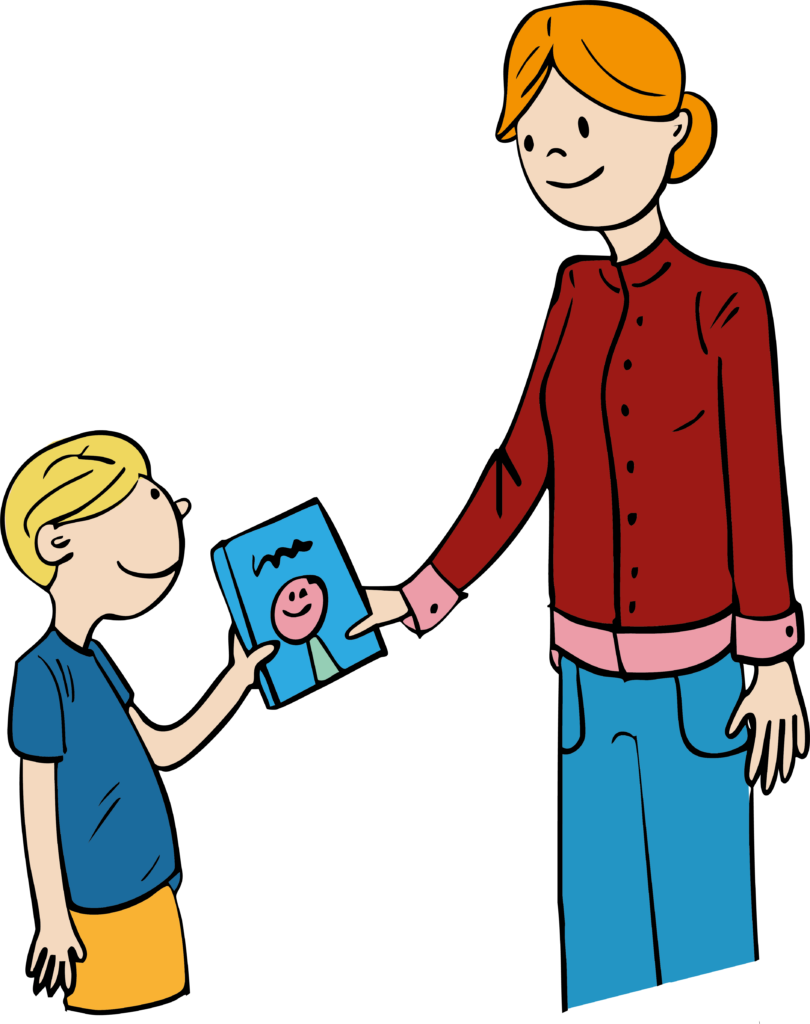
During shared book reading, it is important that you talk about something interesting. You can tell that your child is attentive when

your child tells you something about the pictures or the story. The book awakens many thoughts and ideas.
Show interest and talk about it.
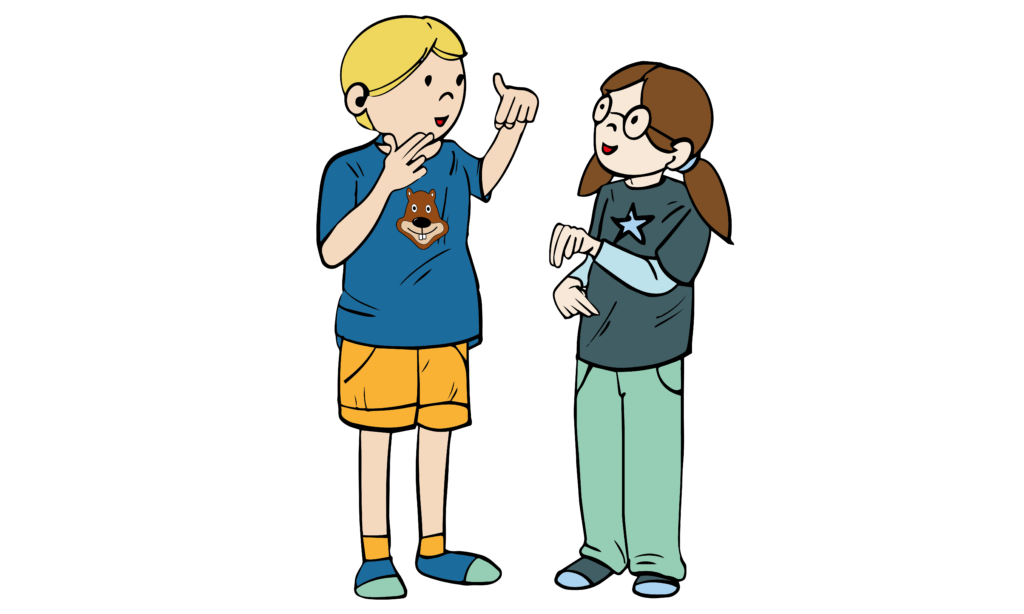

your child asks questions about the story. This shows your child’s curiosity.
Answer the questions so that your child understands everything.


your child asks you to repeat something. Sometimes your child doesn’t understand something straight away, e.g. because they don’t know the signs or words, they didn’t hear something or they were distracted for a moment.
Repeat what you have said or read a part of the story again. Your child will stay attentive if they can follow the story.

your child tells you about similar things in their life. The story has made your child think and they want to share it with you.
Immerse yourself in your child’s thoughts and talk to them about it.
This way you can deal with your child when they are restless
Sometimes your child can become restless during shared book reading. You can help them to concentrate better.
Cuddling
You can hold your child in your arms if they want you to. Your closeness can have a calming effect.

Change position
You can offer your child to change their sitting position and lie down, for example, and relax during shared book reading. Adjust your position so that your child can still see your signs and your face.

Eliminate distractions
Check whether noises or visual stimuli are distracting your child. Turn them off or move to another room.
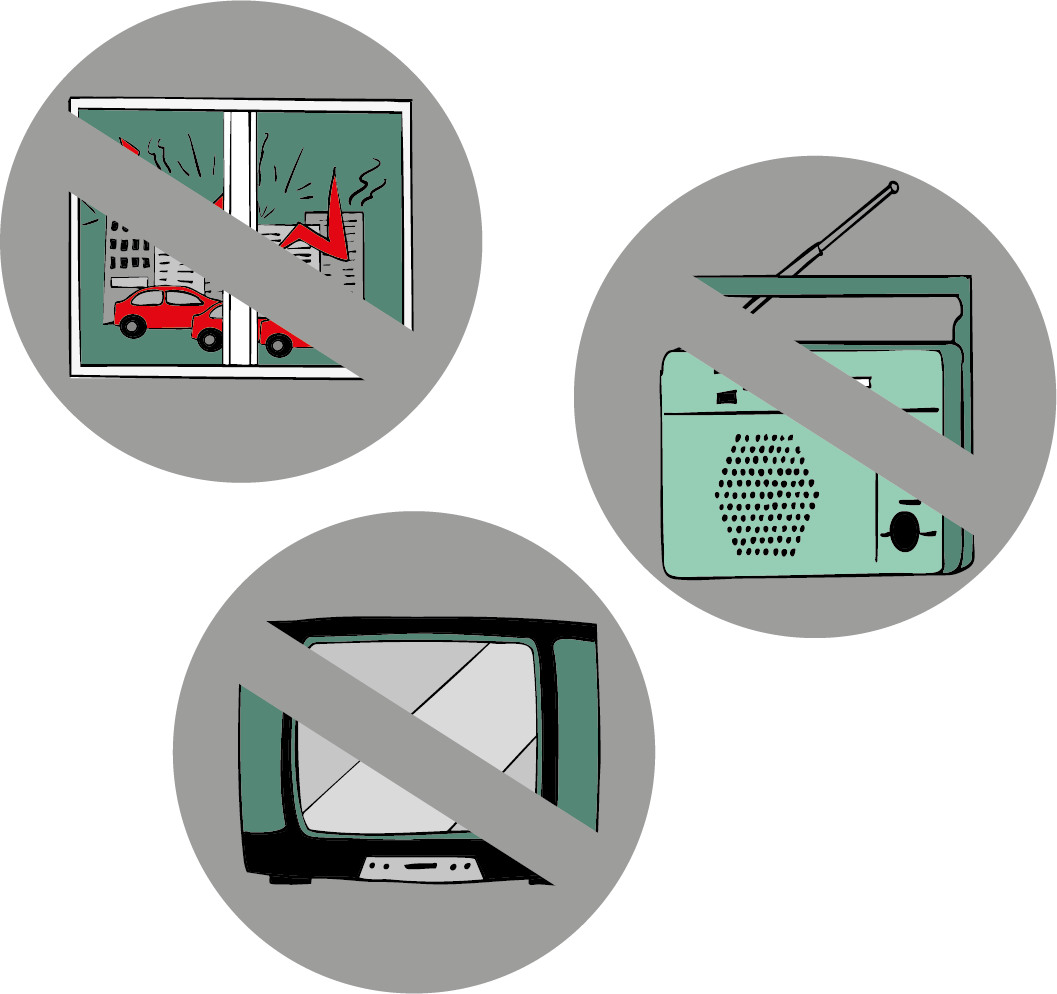
Use facial expressions and gestures
Use your facial expressions and body language to make shared book reading more exciting. Perform the signs in your child's field of vision so that your child focuses on you again.
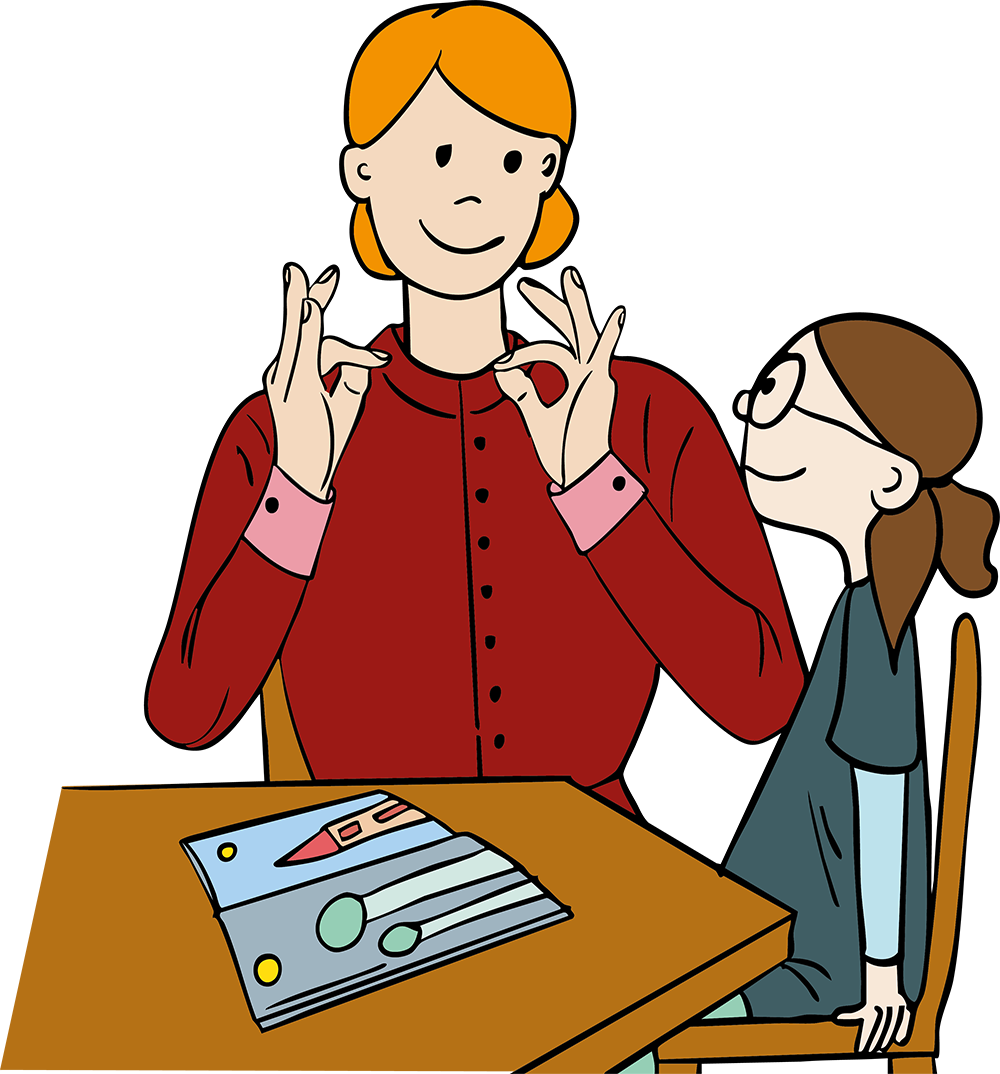
Talking about pictures
You can stop reading the text and talk to your child about the pictures or the content of the book instead.
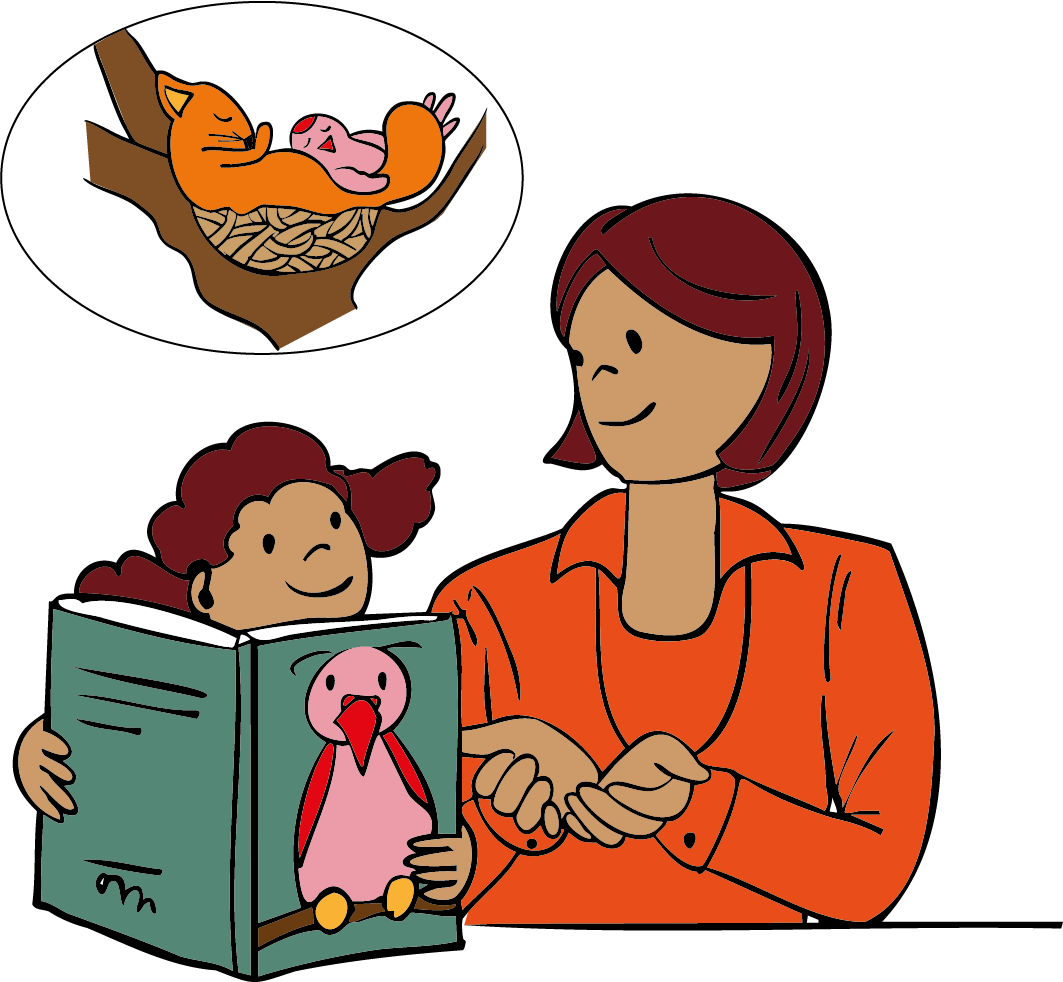
Watch or ask your child
Ask your child why they don't want to stay seated, listen or watch. Watch your child and find out why. Maybe they don't like the book, don't understand something or are too tired.
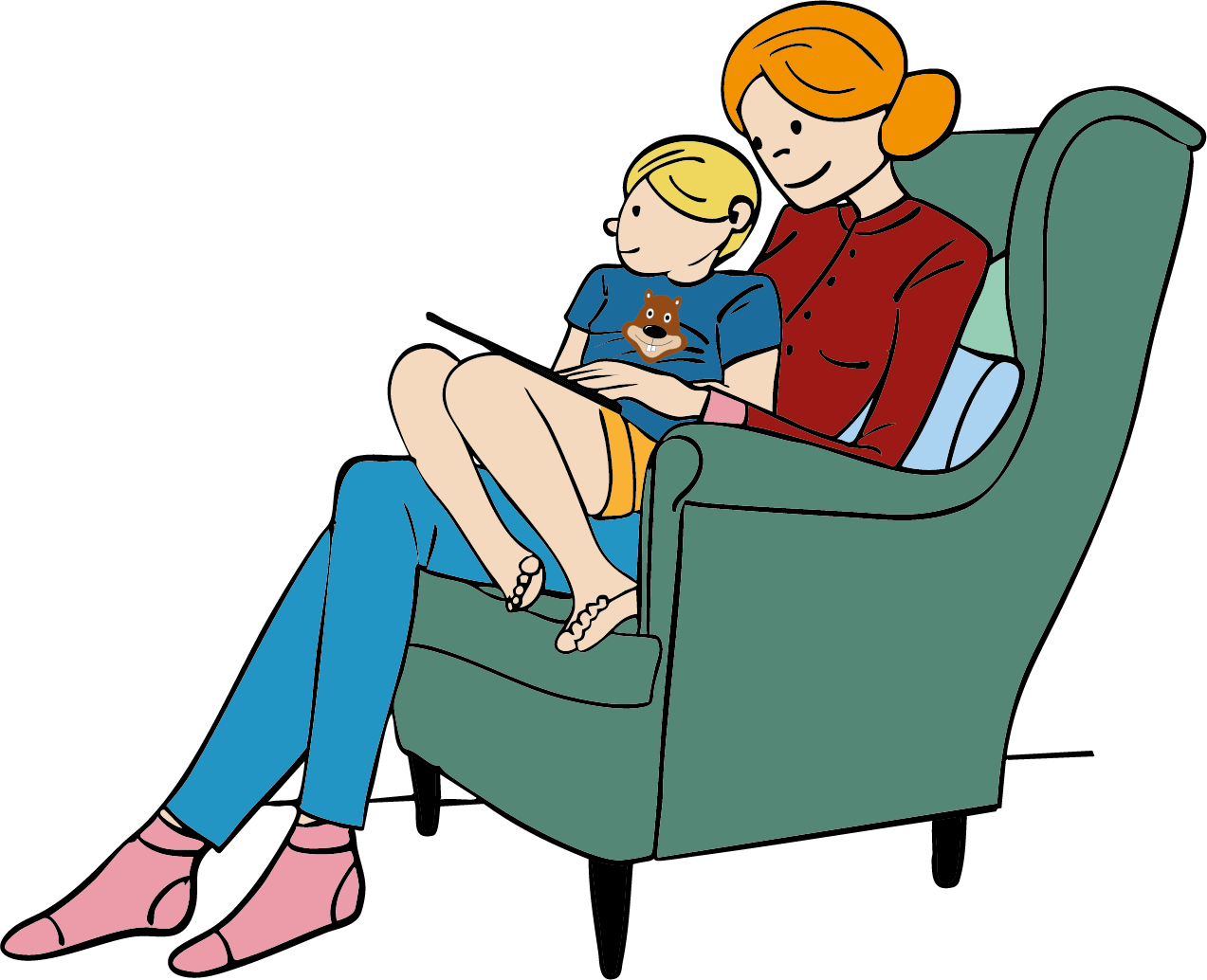
Learning through play
You can introduce a game, such as: I see something you don't see: It's black and gray, you can cut bread with it, you can also hurt yourself with it.
Your child can then look for it in the book and you can talk about it.

Have a toy held
For some children it is easier to concentrate if they can hold something in their hands. This could be a soft toy or a toy, for example.
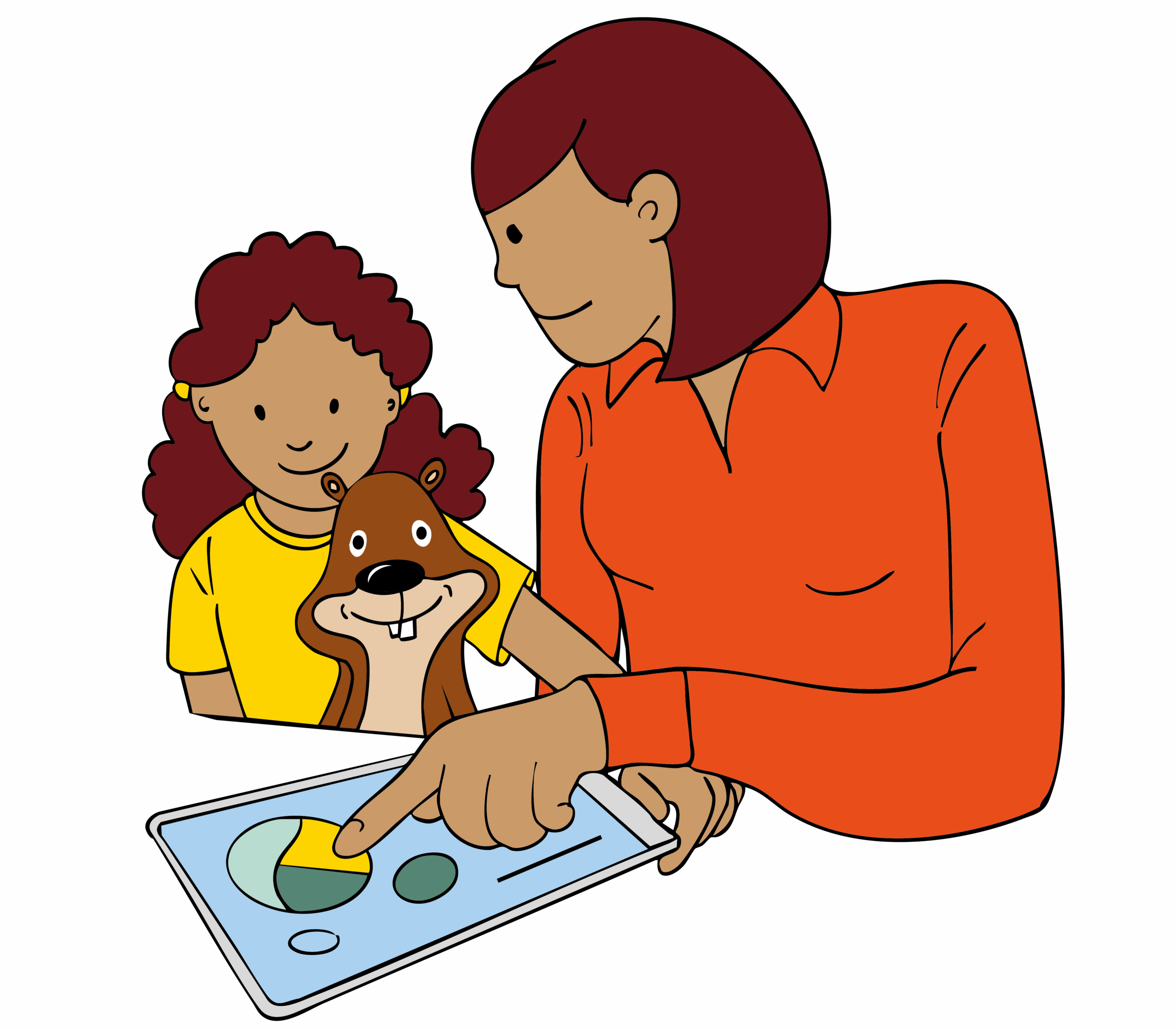
Read alternately
If your child can already read by themselves, you can take turns during shared book reading. This gives your child a break from listening/watching and makes them even more active.
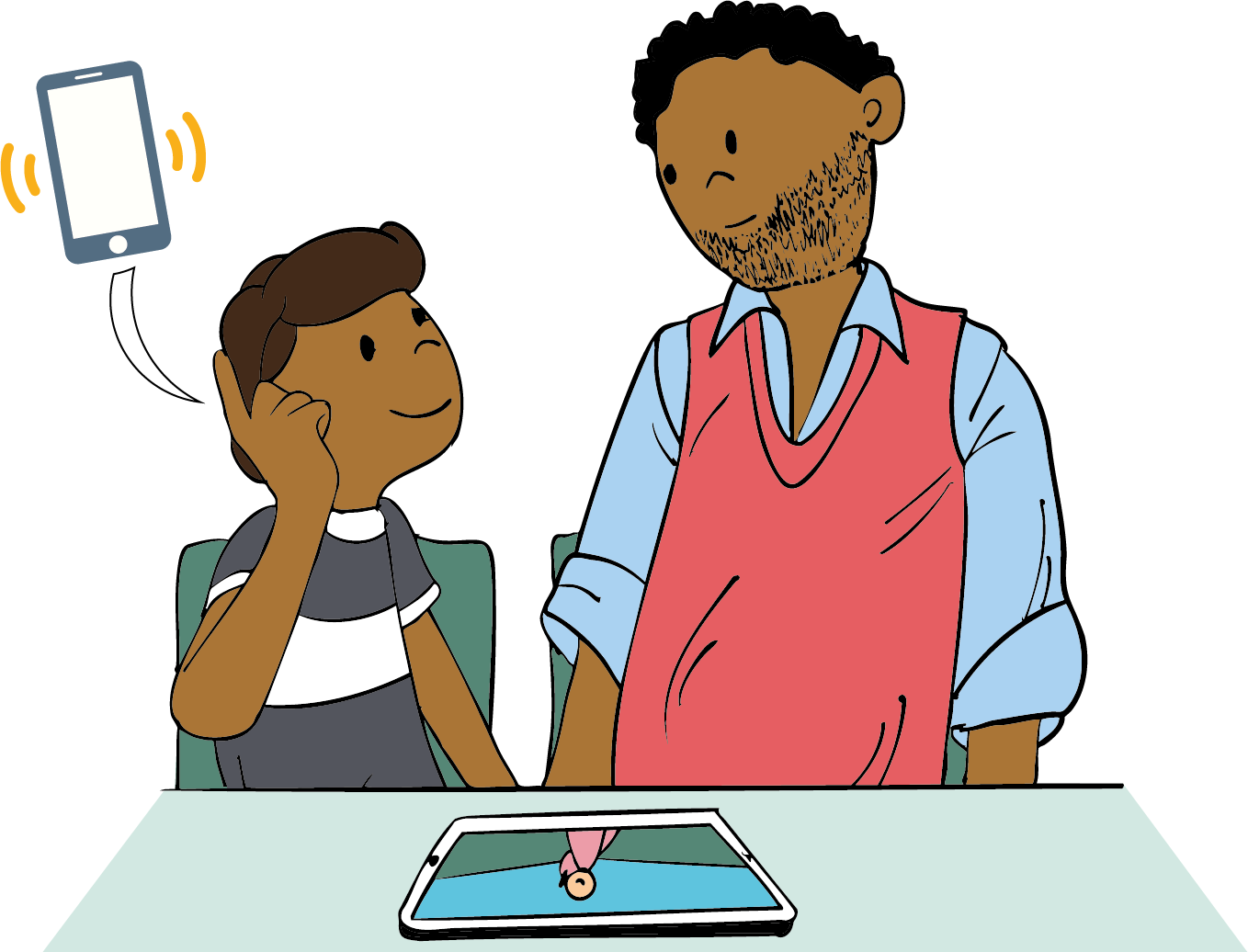
Do shared book reading casually and start with short stories
Children sometimes flip through a book and put it down straight away. You can still do shared book reading, even if your child is playing with something else.
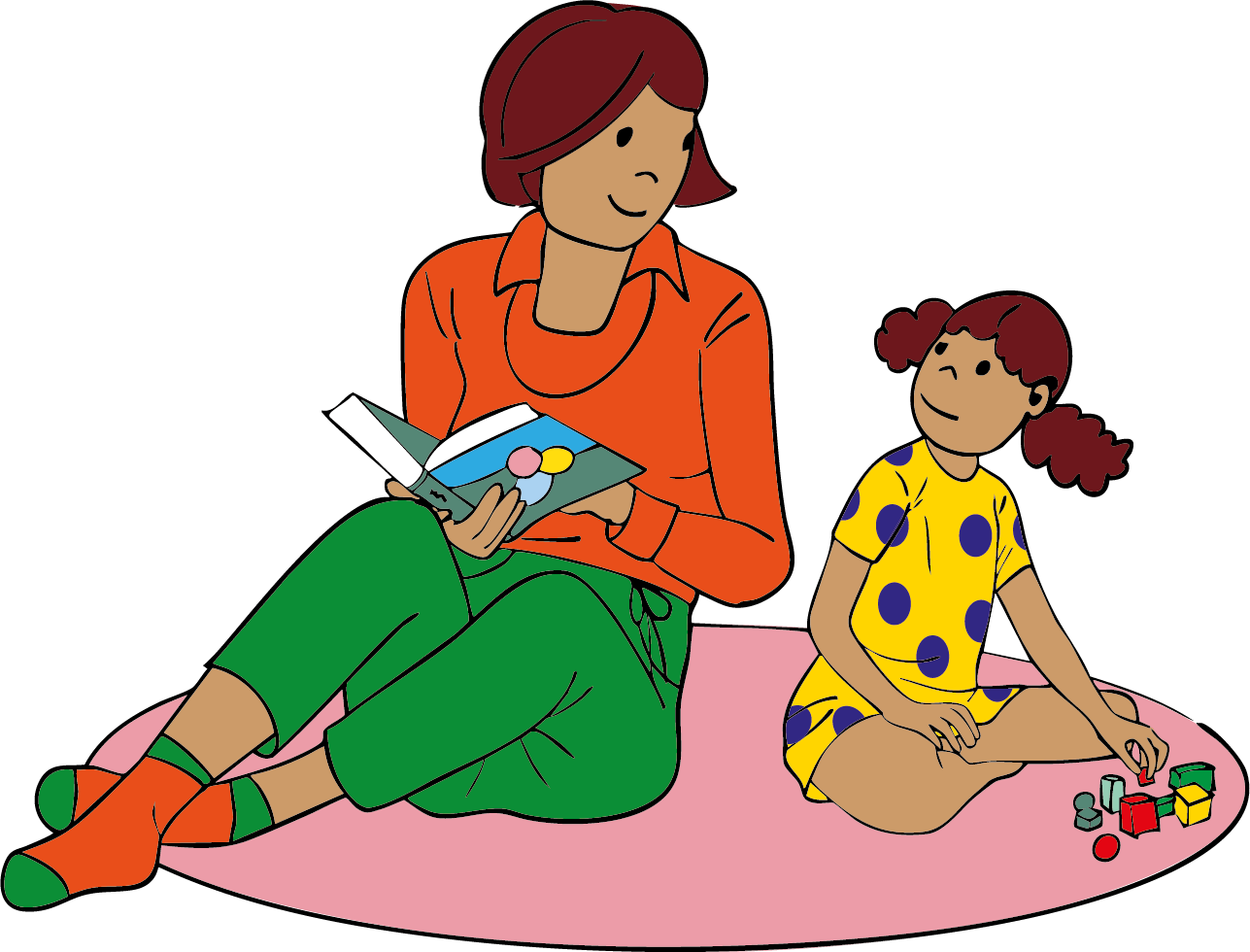
Your child will slowly learn to pay more attention and to watch or listen on the side.

However, this can be difficult for your child if they cannot hear you well enough or if you use sign language. Here you can start with very short stories as long as you have your child's attention. Only gradually can you introduce longer stories.

Take breaks and move around
Get moving together during reading breaks, for example by playing with a ball or going to the playground. Breaks and exercise can help your child to concentrate better afterwards.

Recognize your child's efforts
Talk about your experiences. Your child should do most of the talking. Ask your child what went well when reading aloud today. Other possible questions: What was difficult for you, what was easy? What did you particularly enjoy? What didn’t you like? What should we do differently and better?
Don't give up
If you introduce your child to shared book reading in small steps, they will gradually learn to concentrate better. This is an important step for your child’s development.
Be patient and empathetic
Every child is different. Try different ways of reading stories and find out together what you like best. Don’t force anything. Your child decides when they want to stop. Shared book reading should always be fun, otherwise your child will reject it.


Exercises
Exercises

Watch the next time you do shared book reading: How does your child show you that they are paying attention?

Try out three of the tips to get your child’s attention.
